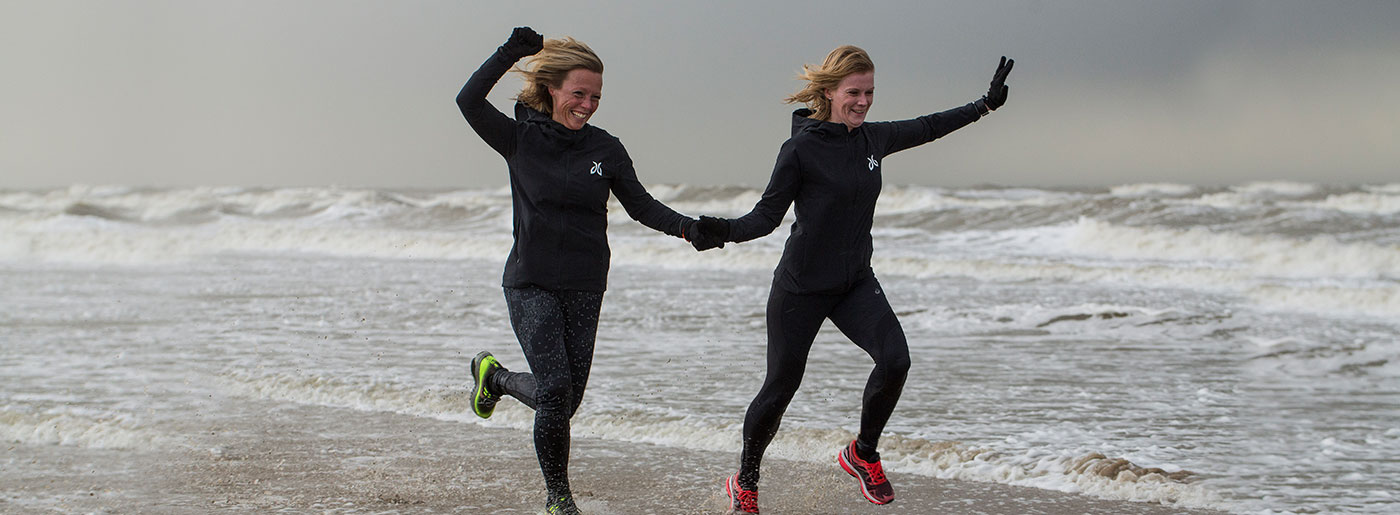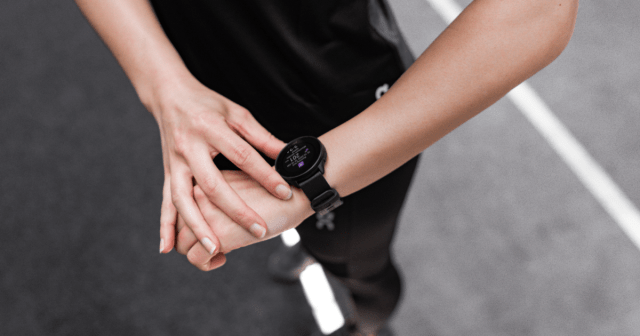Maybe you had a goal, gave it a shot, failed, and thought ‘I probably just don’t have what it takes.’ Well, read this and think again – maybe you do have what it takes, you just need to know what it takes and work on it.
Then try again.
But first, let’s see what the “Fittest Woman on Earth”, Iceland’s double CrossFit Games Champion Annie Thorisdottir, and her coach Frederik Aegidius have to say about why people fail to achieve their goals and how to tackle the obstacles standing between you and your dreams.
What are the common reasons WHY people fail to achieve their goals?
Annie Thorisdottir and Frederik Aegidius: we feel these are the four key reasons why people fail to achieve their goals:
1) Lack of a clear plan
You need to have a specific goal and map out a clear path to get there. It’s not enough to say I want to be the best and win, you need to define exactly how you’re going to make it happen.
2) Impatience
Your plan needs to be realistic and you need patience to gradually work your way up. No one can maintain an insane upward improvement curve all the time. That’s why it’s important to have milestones on the way that tell you that you’re getting closer to your goal.
3) Lack of resilience
Ultimately, the reason why people fail to achieve their goals comes down to resilience – you need to be prepared and able to follow through with your plan. We all know people who are full of great ideas and are even able to come up with a plan, but then they stick to it for a week and drop it when it gets too far out of their comfort zone.
If you have a sugar-coated idea of what it means to chase your dream, you may think once you find your path, everything will be easy. But it doesn’t work like that – things will turn sour from time to time even if you’re on the right path. It’s part of the journey and the process of growing.
4) Leaving it halfway
People forget that success doesn’t come with getting one thing right, you need to find a place for every piece in the puzzle. Training at the gym isn’t enough – you also need the right nutrition, recovery and sleep.
Despite how tempting quick fixes may seem, they aren’t sustainable.
And despite how tempting quick fixes may seem, they aren’t sustainable: you can eat only lemons or vegetable soup for 6-8 weeks to lose weight but you can’t keep that up forever. An extreme (not to mention incomplete) diet isn’t a full lifestyle change, it’s a fad.
If you’re serious about sports, it’s not just something you do when you happen to be in the mood – it’s a lifestyle that you need to take all the way and put all your effort into it.
So, how can you take it all the way?
Annie: Expect the hardships and be ready for them. Make the decision to embrace everything that comes your way. When training gets difficult and challenges me to the extreme, I know that is when I’m getting better and mentally stronger. Use the challenges you face as a motivator.
Believe in yourself but expect that it’s going to be hard.
Frederik: Practice consistency and keep at it. Believe in yourself but expect that it’s going to be hard. If you don’t know or can’t do something, read a book or take a course. If you suck now, you can only get better at what you do. I believe motivation and hard work is more important than talent. The people who make it are the ones that push the hardest because it’s not possible to keep doing something consistently and not make progress. Just believe in the process.
Is there any way to minimize the possibility of failing?
F: Make a roadmap. A clear plan on how to achieve your goal is the easiest way to not get distracted and stray from the path. Trying to achieve something without a plan is like making dinner without a recipe. If you have no idea what you’re going to make and just throw in stuff you find in the fridge, the chances are the result will be far from delicious. If you follow a recipe, you can pinpoint exactly where you went wrong and fix it.
But how do you know if you’re doing the wrong things?
A: If you’re constantly getting injured or ill, there’s a big chance that you’re overtraining. That’s when you have to take a step back to figure out what you’re doing wrong and what you should be doing instead. To do that you need to know yourself and possibly find a good coach to help you train more efficiently without injuring yourself.
If you’re constantly getting injured or ill, there’s a big chance that you’re overtraining.
It’s natural that you don’t always feel like training, but if you feel tired and training feels heavy for an extended period of time, measure your resting heart rate and if it’s abnormally high, you know something is wrong.
I measure my resting heart rate in the morning and when I train, I track my heart rate with my Polar Vantage V in endurance training sessions and warm-up sessions when I gradually build up for my workouts. If it’s difficult to get my heart rate up during a warm-up, it’s a sign I may have to take a rest day after. I don’t stop training right there and then but if it continues for two or more days in a row, I know I need to take a break and recover.
What if you do all the right things and still fail? How to pick up the pieces and go on?
F: First of all, don’t beat yourself up about it! Show some self-compassion: no one is gonna get it right the first time. Go back to your roadmap and see how you need to adjust it. A plan made two years ago may not be optimal for you anymore. Even the best roadmaps need to be adapted along the way.
Don’t give up on your dream, but modify it if you need to.
A: Don’t give up on your dream, but modify it if you need to. For example, before CrossFit, I was doing gymnastics at a competitive level but I would have never made it to the Olympics – I just didn’t have the build for it. But that wouldn’t have had to be the end of it, I could have gone into group gymnastics or specialized in a certain discipline within gymnastics if my dream was to get to the Olympics.
In 2017, I went into the CrossFit games thinking I wanted to win, but instead, I got 3rd place. Yet, I was proud and didn’t see it as a failure because I had done everything in my power to reach my best performance. I trained as hard as I could, made sure I got the right amount of sleep, had the right coach and support from my team, and didn’t make too many mistakes in the competition.
The only thing I’m in full control of is the effort I put in.
That time it wasn’t enough for 1st place but I was still proud because the only thing I’m in full control of is the effort I put in. A goal like being a World Champion is an external factor that you’re not in control of. There might be someone better than you and that is an external factor you can’t affect.
You can only do your best, you can’t control others or affect external factors.
F: At the end of the day, it comes down to accepting that you can only do your best, you can’t control others, or affect external factors that may play a part in any given situation. That’s why you can and should be proud of yourself when you know you gave it all you’ve got – that’s always enough and all you can do!
If you liked this post, don’t forget to share so that others can find it, too.
Or give it a thumbs up!
I like this article
Please note that the information provided in the Polar Blog articles cannot replace individual advice from health professionals. Please consult your physician before starting a new fitness program.





